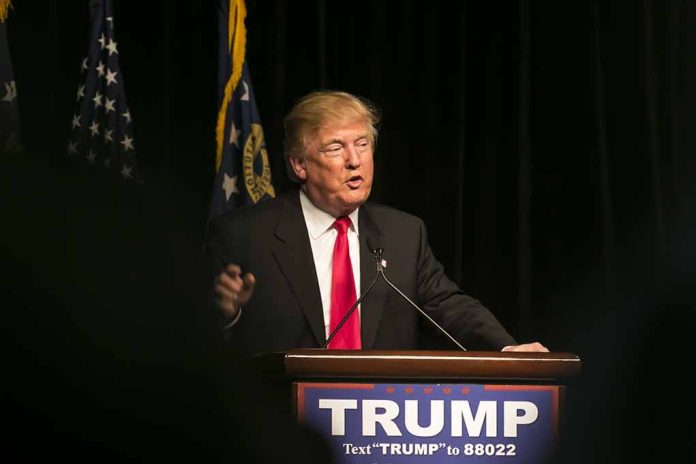
President Trump’s dismissal of NSA Director General Timothy Haugh has sparked intense national security concerns as questions mount about the motives behind this unprecedented leadership shake-up.
Key Takeaways
- President Trump fired NSA Director Gen. Timothy Haugh and reassigned Deputy Director Wendy Noble despite their decades of nonpartisan service.
- Haugh also served as commander of U.S. Cyber Command and was known for countering Russian interference in the 2018 midterm elections.
- Conservative activist Laura Loomer claimed credit for the dismissals, calling the officials “disloyal” Biden appointees.
- Top lawmakers including Sen. Mark Warner expressed alarm over national security implications amid ongoing cyber threats.
- The firings follow reported patterns of far-right influence within the Trump administration’s national security apparatus.
Abrupt Leadership Change at Critical Security Agencies
President Donald Trump has removed General Timothy Haugh from his dual positions as National Security Agency Director and U.S. Cyber Command commander. The Washington Post first reported the dismissals, which included the reassignment of NSA Deputy Director Wendy Noble to the office of the undersecretary of defense for intelligence. Both Haugh and Noble are career officials with decades of service spanning multiple Republican and Democratic administrations. The White House National Security Council has not provided official comments on the matter, leaving many questions unanswered about the reasoning behind these significant personnel changes.
General Haugh’s military career spanned over three decades with a focus on cyber and intelligence operations. His contributions to national security included leading efforts to counter foreign cyber threats, most notably Russian interference during the 2018 midterm elections. Former senior intelligence official Larry Pfeiffer described the dismissals as “unprecedented,” highlighting the extraordinary nature of removing such high-ranking security officials without clear justification. The timing has raised concerns among security experts about potential vulnerabilities in America’s cyber defenses during a period of heightened international tensions.
Gen. Tim Haugh, the chief of the National Security Agency, was fired at the direction of the White House, according to people familiar with the matter https://t.co/vgG9hKxYcb
— The Wall Street Journal (@WSJ) April 4, 2025
Political Influences and Congressional Reaction
Congressional leaders have expressed serious concerns about the firings. Representative Jim Himes, the top Democrat on the House Intelligence Committee, issued a strong statement defending Haugh’s character and service. Senator Mark Warner, chairman of the Senate Intelligence Committee, questioned the impact on national security, particularly in light of recent cyber threats like the Salt Typhoon attack from China. Warner specifically referenced a reported list of allegedly disloyal National Security Council staff members presented to Trump by activist Laura Loomer.
Loomer, described by multiple sources as a far-right activist, claimed credit for the removal of both NSA officials, stating they were “disloyal to President Trump” and characterizing them as “Biden holdovers.” This claim adds to the growing concerns about political influence over traditionally nonpartisan security institutions. While Trump reportedly denied Loomer’s involvement in these specific firings, NBC News reported that the president had previously dismissed three National Security Council officials after meeting with her, suggesting a pattern of personnel decisions influenced by those outside traditional security circles.
Broader Implications for National Security
Security experts warn that the sudden leadership vacuum at both the NSA and Cyber Command could have immediate repercussions for America’s cyber defense capabilities. Senator Warner specifically questioned the wisdom of removing experienced leadership while facing significant cyber threats. “General Haugh has served our country in uniform, with honor and distinction, for more than 30 years. At a time when the United States is facing unprecedented cyber threats, as the Salt Typhoon cyberattack from China has so clearly underscored, how does firing him make Americans any safer?” questioned Warner in his public comments.
The situation reflects growing tensions between career national security officials and political appointees within the administration. Reports also noted Elon Musk’s recent visit to the NSA and subsequent comments about the agency needing an overhaul, though no direct connection to the firings has been established. The reshuffling occurs as the administration appears to be implementing significant changes across multiple security agencies, raising questions about the direction of American intelligence and cyber operations under the current leadership approach.
Sources:
National Security Agency Director Gen. Haugh fired, civilian deputy director reassigned
National Security Agency chief and deputy director dismissed
Trump Fires General Timothy Haugh, Head of the National Security Agency and US Cyber Command



